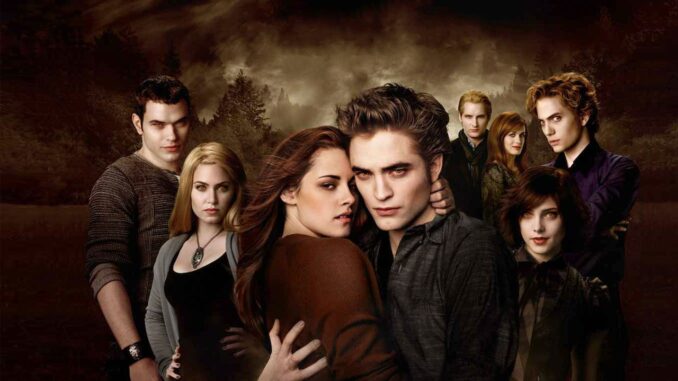
The Shadow of Forks: Will Bella and Edward Ever Dance Again?
The very question of Kristen Stewart and Robert Pattinson reuniting for a “next movie project” — particularly one that might evoke the shadowy romance of Bella Swan and Edward Cullen — hovers like a persistent, nostalgic phantom over the landscape of Hollywood. For a generation, they were the undeniable, incandescent heart of the Twilight Saga, their on-screen chemistry so potent it spilled over into a very real, very public, and ultimately very complex off-screen relationship. But time, as it always does, has marched on, transforming these cinematic adolescents into formidable, critically acclaimed actors. To ask if Bella and Edward will reunite is not just to ponder a film project, but to delve into the powerful currents of career evolution, personal history, and the enduring, often-unrealistic demands of a devoted fandom.
Let’s address the most straightforward interpretation first: Will Kristen Stewart and Robert Pattinson reprise their roles as Bella and Edward in a direct continuation or reboot of the Twilight Saga? The answer, in all likelihood, is a resounding and emphatic no. The saga, for all its colossal success, reached its narrative crescendo and definitive conclusion. Bella became a vampire, Edward embraced fatherhood, and their eternal love story found its peace. To drag them back would not only risk diluting the powerful emotional resonance of that ending, but it would fundamentally ignore the artistic trajectory both actors have meticulously crafted since shedding their fangs and shimmery skin.
Consider their post-Forks evolution. Kristen Stewart, once synonymous with Bella’s brooding intensity, has blossomed into an indie darling, a chameleon-like performer who has fearlessly tackled challenging roles in films like “Personal Shopper,” “Clouds of Sils Maria,” and her Oscar-nominated turn in “Spencer.” She has consistently chosen projects that prioritize artistic integrity and complex character studies over blockbuster appeal, actively subverting the very typecasting that Twilight threatened to impose. Similarly, Robert Pattinson, after exploring the darker, more experimental corners of cinema with auteurs like David Cronenberg and the Safdie brothers, made a seismic leap into the mainstream as “The Batman.” He too has strategically distanced himself from the teen heartthrob image, proving his mettle as a serious, versatile actor capable of both intense character work and leading a major franchise. To return to the gothic romance that defined their early careers would feel less like a nostalgic embrace and more like a regressive step, a disservice to the sophisticated artists they’ve become.
Beyond their professional metamorphosis lies the undeniable ghost of their past: their very public relationship and its equally public dissolution. While both are consummate professionals, the sheer weight of media scrutiny and fan expectation surrounding their reunion on any project would be immense, almost certainly overshadowing the film itself. Every interview would pivot to their history, every shared glance analyzed, every scene imbued with a meta-narrative that would be impossible to ignore. Such an environment, while a goldmine for tabloids, is often creatively stifling for actors. The commitment required to revisit characters, or even just work together, would demand a level of emotional labor that might simply not be worth the artistic return.
However, the question isn’t solely about Bella and Edward. It asks if they might reunite in a “next movie project” of any kind. Here, the door, while still mostly shut, perhaps creaks open just a fraction. Actors, particularly talented ones, often find themselves working with past collaborators. The industry is smaller than it appears, and mutual respect for craft can transcend personal history. Imagine a scenario where a visionary director, with an exceptionally compelling script, approaches both Stewart and Pattinson for roles that are utterly divorced from their Twilight past – perhaps a gritty crime drama, a sharp intellectual thriller, or a profound character piece. If the material were truly undeniable, offering a fresh, challenging canvas for their matured talents, and if both actors felt genuinely compelled by the project and comfortable enough with the past, then perhaps, just perhaps, a reunion as actors could materialize.
But even then, the narrative around their collaboration would inevitably be about them, not the characters they portray. It would be a cinematic phoenix rising from the ashes of a cultural phenomenon, a story of two former lovers and screen partners rediscovering a different kind of chemistry. Such a project would be an event, a curiosity, and a testament to their professionalism, rather than a simple casting choice.
In conclusion, the yearning for Bella and Edward to reunite is a poignant echo of a simpler cinematic time, a testament to the enduring power of a particular gothic fantasy. But Kristen Stewart and Robert Pattinson have skillfully navigated the treacherous waters of post-franchise stardom, forging distinct and critically acclaimed paths. To expect them to don the familiar costumes of Forks again is to misunderstand their artistic journey. A reunion as actors in an entirely new project, while not an impossibility, remains a distant and unlikely prospect, burdened by the shadow of their past and the bright glare of their individual futures. Perhaps, like the best love stories, some things are beautiful precisely because they had their time, found their ending, and now exist purely in the realm of cherished memory.
